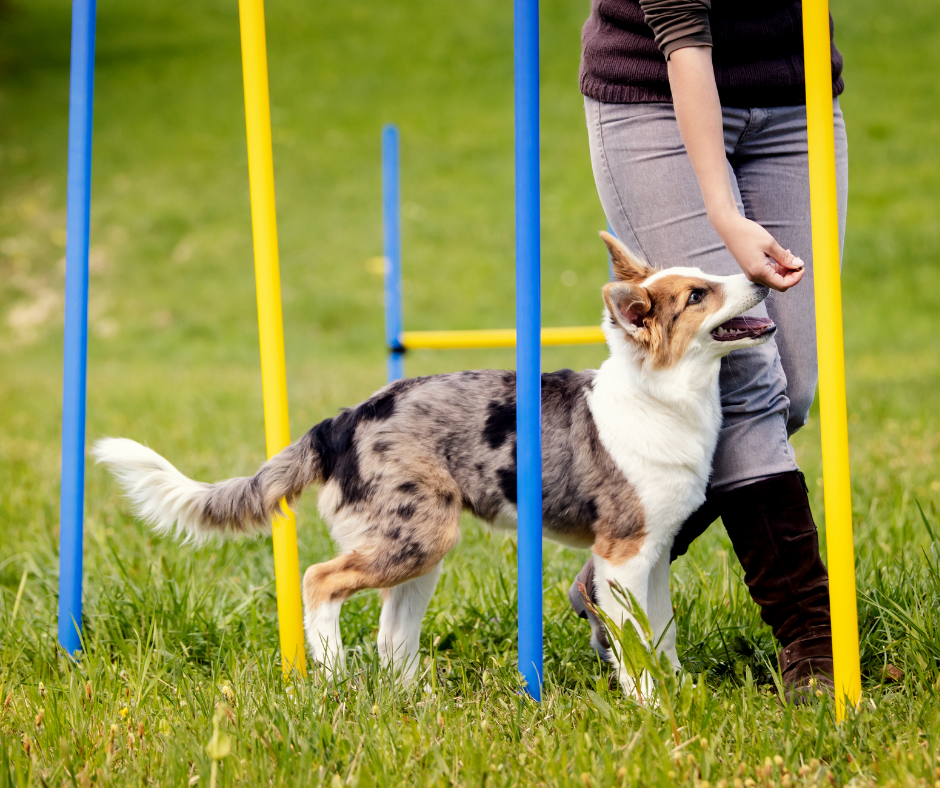Teamwork As A Trainer: Building Trust As A Dog Trainer
Written By Lauren Tsao, MS, CDBC, CPDT-KA
As professional animal trainers, trust is a colossal part of our job whether we are aware of it or not. We need the trust of the animal so, we can function as a team with the animal and we aren’t injured. However, we also need the trust of the human side of the equation. The animal’s owner must trust in our opinion, expertise, and ability to provide the results they are asking for in a humane and effective way. This week as I was reading through the next chapters in Ferrazzi’s book, “Leading Without Authority” (2020), I found a pattern of him suggesting that trust was one of the most important factors when forming a team and this set off light bulbs in my head.
To build this trust Ferrazzi suggests opening up ourselves to others and if struggle comes, we need to be willing to put aside any prejudgement, sense of ego, or defensiveness (Ferrazzi, 2020, pg. 70). I absolutely love this thought process and believe it is something we need more of in the training world.
“People do not want to be told. They want to be part of something. A new type of leadership is needed that is human, authentic, purposeful, and is about creating the right environment for others to flourish.”
So, what does this have to do with dog training? If you don’t know, you probably just haven’t been on the field long enough. I hear weekly stories from students about their past trainers blaming them for lack of progress when they really were trying. This lack of trust eventually eats away at the student-trainer relationship so much that they switch to another training facility instead. It is easy to find ourselves guilty of this behavior when we feel we are being questioned on how much of an expert we really are, but we need to consider the climate in which students are shopping for training services.
By the time they finally find a trainer that fits their needs, is certified, and treats their dog humanely, some of these students are burnt out and distrusting individuals calling themselves professional trainers. According to Ferrazzi (2020, pg. 70), “We need to keep offering until our teammates see the value in joining and reciprocating in sharing our time, energy, resources, knowledge, and emotional commitment.” So, this brings us to the point that trainers not only need to be considering how to gain the trust of the canine student, but also the trust of the human student to deliver the best results as a team unit.
“The more porosity we can inspire in others, the more likely they are to hear our message, join our mission, and dive into some breakthrough thinking.”
Now that we know this information, what do we do with it? I believe that if dog trainers had the same empathy for our human students, as we do our canine students, we could build that team-saving trust that is needed to make extraordinary progress. Sometimes this baseline trust is the difference between a student graduating from a training class or not. We are able to trust dogs to return to us when we call, to herd livestock without injuring them, and to run agility courses without making a fool out of us. We need to share that same faith in our human students. We need to make sure we are inspiring our students to complete their program, continue training when we aren’t around, and that are giving them the resources they need to succeed without us.
However, like true teammates, we need to be in the background ready to help should they need us. I have a saying about student hiring that is as follows, “If a student hires me again, I want them to hire me again because they enjoyed our training sessions and they want to return; not because of their dog’s continued unwanted behaviors and their own lack of training knowledge require it.” Essentially, I want to provide my students with everything they need to succeed and trust that they will not “steal” my ideas or start their own training business down the road and trust that they really just need these resources to succeed with their own dog.
Don’t be afraid to put a little trust in more than the dog in front of you. Love and teach your human students just as much as you love and teach their dogs. If you or your dog training team is struggling with teamwork, check out our Jackson, MS metro dog training workshops and webinars for dog trainers and other pet professionals.
References:
Ferrazzi, K. (2020). Leading without authority. New York: Currency




